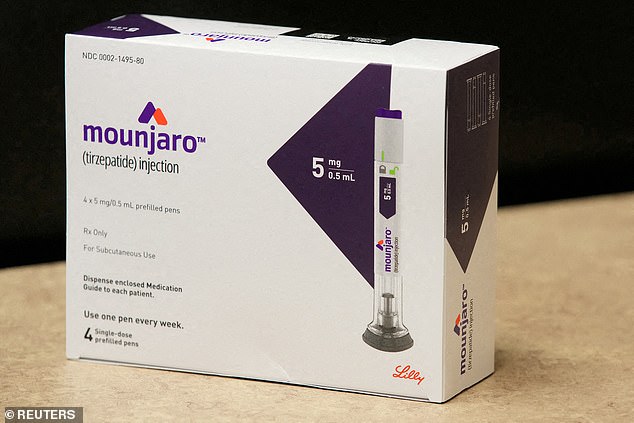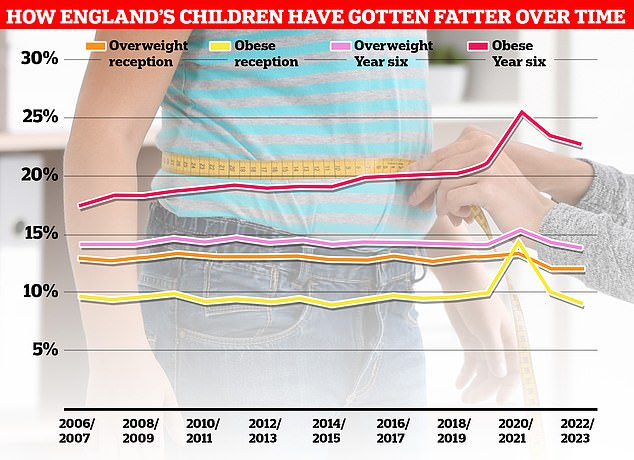Scientists discover the truth about teens on Ozempic and suicide risk
Weight-loss shots can improve mental health and reduce the risk of suicide in obese teenagers, a major study has found.
The findings refute previous concerns that drugs like Ozempic can actually cause suicidal thoughts, reassuring doctors and patients.
The American study – published in JAMA Pediatrics – is the first study to date to look at the impact of the weight-loss drug on the mental health of teenagers.
The researchers analyzed 4,000 obese participants, ages 12 to 19, on semaglutide, the drug in Ozempic and Wegovy, or liraglutide, sold as Victoza and Saxenda.
Their health data was compared with 50,000 people of the same age who were treated only with lifestyle measures and received no medications.
Despite fears it could trigger suicidal thoughts, weight loss drug Ozempic was found to improve participants’ mental health

Weight loss jab Mounjaro will also be offered on the NHS in a bid to curb the country’s spiraling obesity crisis
Overall, Ozempic was associated with a 33 percent reduction in the risk of suicidal thoughts or attempts over 12 months of follow-up.
Researchers found that the trend continued even after three years of follow-up.
This comes after research published last year by Imperial College London found that overweight children were twice as likely to suffer from mental health problems as their classmates.
However, the study found that the teens who took the drug were more likely to experience drug-related side effects, especially diarrhea.
Obesity among children aged five to nineteen has skyrocketed in recent years and increased eightfold in the past forty years.
Recent data in Britain shows that 36.6 percent of children are overweight, compared to just under 20 percent a decade ago.
The World Health Organization also revealed last year that 37 million children under the age of five worldwide are now overweight – four million more than at the turn of the century.

More than a million children had their height and weight measured as part of the National Child Measurement Program (NCMP). Nationally, the rate among children in the sixth form is well over a third, despite falling slightly since the start of Covid
Ozempic is primarily a diabetes medicine and is not currently available on the NHS for weight loss.
However, the research shows that the use of Ozempic to treat obesity in teenagers is ‘increasingly used’.
Experts warn that while the results are promising, further research in this area is needed.
‘Since the original studies raised concerns that these drugs could cause harm, subsequent studies have shown that this is not the case.
“Some people even suggest the opposite, that these drugs can have a positive impact on mental health, but need continued vigilance on this issue,” says Professor Naveed Sattar, an expert on obesity at the University of Glasgow, against MailOnline.
“The results here may not be too surprising, as you might expect a beneficial benefit from losing weight and engaging in healthy activities,” he adds.
‘If it means you have less weight and better mental health, and while the results are promising, we need larger clinical trials.’
Earlier this year, studies suggested that Ozempic could increase suicidal thoughts.
However, a groundbreaking study from the University of Oxford this summer showed that this was not the case.
Researchers in Oxford found there was no link between the drug and psychological conditions.
The researchers said their research could even be applied to using the drug in addition to dealing with weight loss.
‘Our results suggest that the use of semaglutide could go beyond controlling diabetes, potentially providing unexpected benefits in the treatment and prevention of cognitive decline and substance abuse,’ said Dr Riccardo De Giorgi of the University of Oxford.
